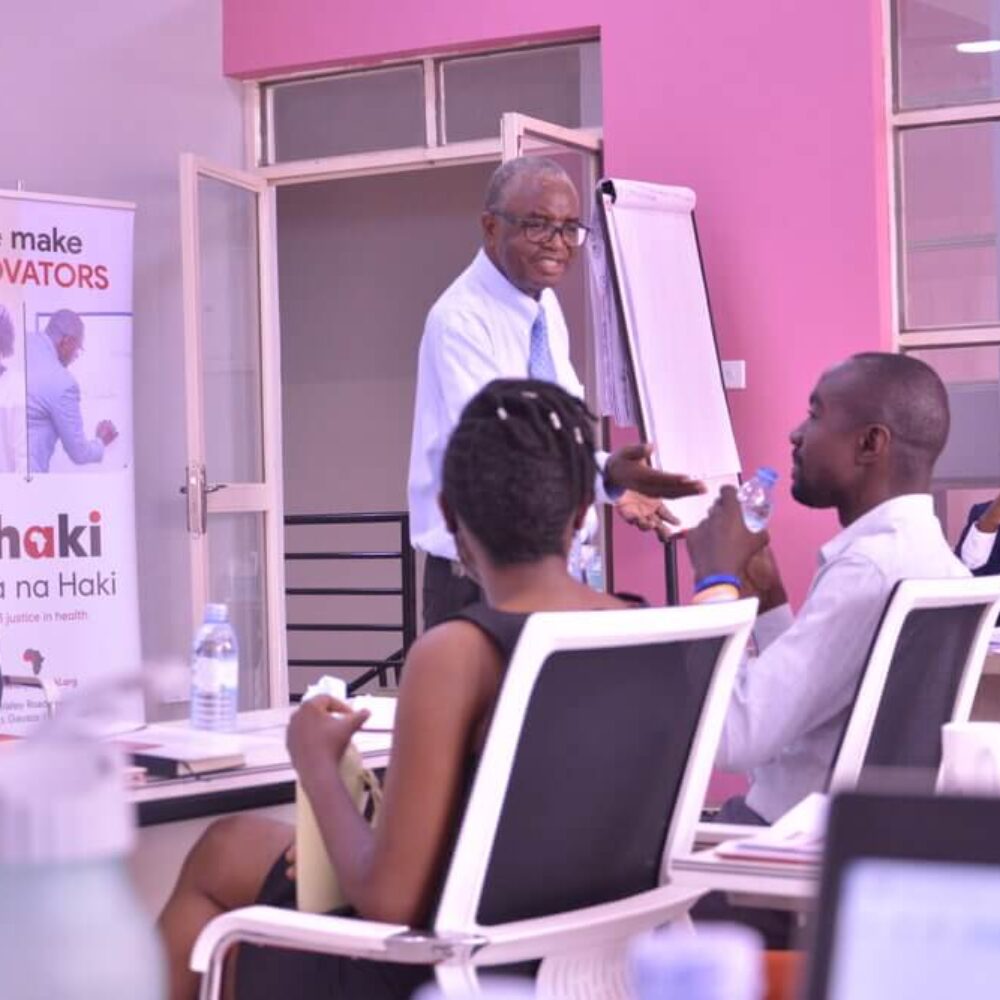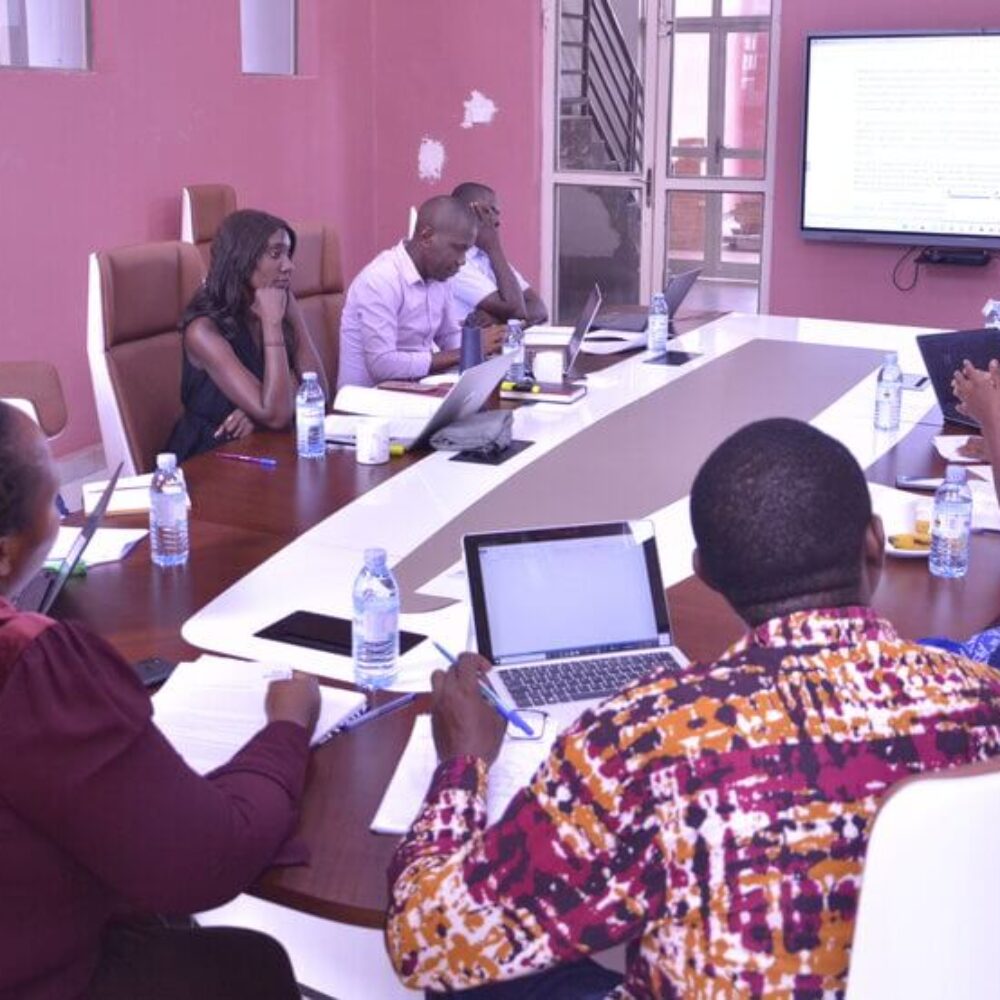Abortion Litigation in Africa
Introduction
Litigating abortion rights on the continent is fraught with difficulty with restrictive legal regimes, political hurdles and hostile social attitudes which would forestall the implementation of any court decisions; the absence of indigenous jurisprudence and failures by judges and lawyers as well as the preference by stakeholders to rely on non-adversarial means to realize progress on what is a hot-button political and socio-cultural issue. This is indeed the reason for the absence of abortion litigation in the Litigating Reproductive Justice in Africa (LIRA) Programme focus countries. Excluding criminal prosecutions and undecided litigation that are a preserve of the state and which rarely if ever are based on human rights, there are only four decided constitutional or civil cases in the six LIRA Programme focus countries.
Overview of Civil Cases
Benin

Ivory Cost/Côte d'Ivoire

Kenya

Madagascar

Malawi

Nigeria

Senegal

South Africa

Uganda

Zimbabwe

In 2003, Benin adopted Law No 2003-04 relating to Sexual and Reproductive Health. Article 17 of this law authorises voluntary interruption of pregnancy under exceptional conditions[1]. These include cases where the pregnancy endangers the life and health of the pregnant woman, when the pregnancy is the consequence of rape or an incestuous relationship, or when the unborn child suffers from a particularly serious condition. However, for 18 years, no implementing decree was issued to operationalise this law. This delay significantly restricts access to safe abortion services, particularly in a context where adolescents and young people engage in sexual activity at an early age without adequate access to reliable sexual and reproductive health information. Additionally, the uptake of modern contraception is low, leading to an increase in early and/or unwanted pregnancies.
For example, the 2017-2018 Benin Demographic Health Survey (EDSB) revealed that one in five Benninese teenage girls aged 15 and 19 had already begun their reproductive lives. The proportion increases with age, from 3% at age 15 to 15% at age 17, and 37% by age 19, with 30% of teenage girls having had at least one child. Due to the lack of access to safe abortion care, many women are forced to seek clandestine or unsafe abortions, often resulting in complications or death.
In response to advocacy by civil society organisations, the National Assembly passed Law No.2021-12 amending and expanding Law No. 2003-04 on sexual and reproductive health in the Republic of Benin. This amendment broadens access to safe abortion services beyond the original exceptional cases (threat to the woman's health, rape, incest, or severe fetal anomalies). The new law allows for voluntary interruption of pregnancy up to twelve weeks, at the request of the pregnant woman, if the pregnancy is likely to aggravate or cause material, educational, professional, or moral distress incompatible with the interests of the woman and/or the unborn child. Despite the promulgation of this law, several actions remain to be taken to ensure the effective enjoyment of services
Despite this progressive law, several gaps remain. Since the enactment of Law No 2021-12, no implementing decree has been issued to clarify important questions such as the practical conditions for accessing safe abortion care, the specific health centres authorised to provide these services, and the costs involved.
- Laws and Policies
Article 26 of the Constitution obliges the State to protect the family, particularly the mother and child. Articles 8 and 27 further mandate the State to ensure the right to health, guaranteeing equal access to health, education, culture, information, vocational training, and employment. However, Article 317 of the Penal Code criminalises abortion, considering any action that interrupts the development of a fetus as a crime of homicide, with severe penalties that may fall under the jurisdiction of an Assize Court.
Additionally, anti-conception propaganda remains prohibited in Benin under the law of July 31, 1920. This law, derived from the French Penal Code, penalises any advertisement related to contraception or abortion with fines and imprisonment. However, despite this law, Benin supports family planning initiatives, tolerating and even encouraging the dissemination of contraception information. The 1996 Population Policy Declaration also promotes responsible sexuality and seeks to increase contraceptive prevalence
Law Amendment No 2021-12 Legalises Access to Safe Abortion in Benin.
In 2021, to reduce the number of unsafe abortions and the resulting maternal deaths, the Government of Benin amended the law on sexual and reproductive health (Law N° 2003-04) to increase access to safe, legal abortion care and regulate the practice of voluntary interruption of pregnancy (SGG Benin 2021). This progressive amendment authorises abortion up to 12 weeks, at the request of the pregnant woman, when the pregnancy is likely to aggravate or cause educational, material, moral, or professional distress, thus widening access to legal and safe abortion care.
In the wake of this policy change, SRH providers began mobilising efforts to promote access to safe abortion care. This involved sessions focused on clarifying values, transforming attitudes, training providers on safe abortion procedures, and promoting the use of essential safe abortion drugs and equipment.
National Reproductive Health Strategy: Benin has a National Reproductive Health Strategy aimed at improving maternal and child health outcomes, increasing contraceptive prevalence, and reducing maternal mortality.
[1] Sexual Rights Database. (n.d.). Benin. Retrieved August 28, 2024, from https://sexualrightsdatabase.org/countries/482/Benin
Côte d'Ivoire, a West African country, gained independence in 1960. Since then, it has demonstrated its commitment to promoting and protecting human rights by ratifying various international and regional instruments, including the African Charter on Human and Peoples' Rights in 1992. The country has also taken significant steps to promote gender equality in social, economic, and political spheres. This commitment was exemplified by its ratification of the Maputo Protocol in 2012, followed by the implementation of specific measures to uphold the protocol’s provisions.
Côte d'Ivoire has established legal instruments that guarantee the principles of equality and non-discrimination, particularly with regard to sexual and reproductive rights. Article 2 of the Ivorian Constitution states: “All human beings are born free and equal before the law. They enjoy the right to life, liberty, the development of their personality, and respect for their dignity. These rights are inviolable.” This constitutional provision affirms that men and women are entitled to the same rights under the law.
To combat gender-based violence, Côte d'Ivoire has enacted comprehensive legal measures. Articles 354 and 356 of the Ivorian Penal Code criminalize rape and sexual harassment. Additionally, Law No. 98/757 of December 23, 1998 prohibits female genital mutilation (FGM), providing penalties ranging from 1 to 5 years imprisonment and fines for any assault on a woman’s genital organs. If the victim dies as a result of the procedure, the penalty increases to 5 to 20 years imprisonment. In cases where medical professionals are involved in the practice, they may face up to 5 years suspension from practicing medicine.
At the international and continental levels, Côte d'Ivoire has ratified several treaties that promote sexual and reproductive rights. These include the Convention on the Elimination of All Forms of Discrimination Against Women (CEDAW), ratified on September 6, 1995. Côte d'Ivoire also signed the Optional Protocol to CEDAW in 2000, as well as the Additional Protocol to the African Charter on Human and Peoples' Rights on the Rights of Women, which was adopted in 2003. Moreover, Côte d'Ivoire ratified the Maputo Protocol on October 5, 2011, demonstrating a continued commitment to women's rights.
Legal and Policy Frameworks
The Constitution of Côte d'Ivoire recognizes the right to health and obliges the state to protect the family and promote social welfare. This includes specific measures, such as Decree No. 2015 mandating the reporting of maternal deaths and establishing the National Committee for the Monitoring of Maternal Deaths and Response (SDMR). Furthermore, Law No. 2015-532 of July 20, 2015 prohibits discrimination against individuals living with HIV/AIDS, reinforcing the country’s commitment to health rights.
Despite progress in several areas, Côte d'Ivoire’s abortion laws remain restrictive. According to Article 366 of the Ivorian Penal Code (1981), abortion is only permitted when necessary to save the life of the mother. Article 427 provides limited exceptions, allowing for abortion in cases of rape at the woman’s request. However, stringent procedural requirements, such as the need for certification by two doctors, must be met before such procedures can be carried out.
Additionally, Article 425 imposes penalties on women who undergo abortions, as well as on service providers and any person assisting in the procedure. These restrictive laws have led to high rates of clandestine and unsafe abortions, as observed by the Committee on the Elimination of Discrimination against Women (CEDAW) during its 50th session in 2011.
Reproductive Health Law (2014)
In an effort to improve access to sexual and reproductive health services, Côte d'Ivoire enacted the Reproductive Health Law (2014), which provides a legal framework to ensure universal access to family planning, maternal and child health, prevention and treatment of sexually transmitted infections (STIs), and the prevention of unsafe abortions. However, the law’s impact has been limited by the restrictive nature of the Penal Code’s abortion provisions.
Advocacy and Legal Reforms
In 2017, a coalition of women's rights organizations filed a constitutional challenge against the restrictive abortion laws, arguing that the Penal Code violated women's constitutional rights to health, dignity, and equality. In 2018, the Constitutional Council of Côte d'Ivoire ruled that the existing abortion laws were unconstitutional and mandated the government to revise them to better safeguard women’s rights.
As a result, in 2019, Côte d'Ivoire passed a revised law that expanded the grounds for legal abortion. The new provisions allow abortion in cases of rape, incest, fetal abnormalities, or when the woman's life or health is in danger. This legislative reform represents a significant advancement in improving women's access to safe and legal abortion services. Nonetheless, persistent challenges such as public awareness, stigma, and the uneven distribution of services continue to hinder the full implementation of the law.
Before the promulgation of the 2010 Constitution, abortion in Kenya remained largely criminalised and stigmatised, with women being imprisoned and medical providers who offered safe abortion services prosecuted. The 2010 Constitution permits safe abortion on a wide array of circumstances, and is complemented by county laws that are increasingly emerging to allow for safe abortion. The Constitutional provision in Article 26(4) which prohibits abortion ‘unless there is need for emergency treatment or the life or health of the mother is in danger or if permitted by any other written law’ is operationalised by provisions of the 2017 Health Act.
The decision in FIDA – Kenya & Ors v The Attorney General & Ors 24 is illustrative. Between 2013-2014, the Kenyan Director of Medical Services withdrew the 2012 Standards and Guidelines for Reducing Morbidity and Mortality from Unsafe Abortion in Kenya and the National Training Curriculum for the Management of Unintended, Risky and Unplanned Pregnancies, respectively. In June 2018, JMM, who had barely just turned 18, died due to complications arising from a botched back-alley abortion in an attempt to terminate a pregnancy resulting from rape. She had sought to terminate the procedure. Activists and JMM’s mother petitioned the High Court of Kenya, linking the withdrawal of the guidelines to JMM’s death which they argued was a violation of her right to life and health. The petitioners argued that the withdrawal of the guidelines deprived individuals, like JMM, of the necessary information required.
Madagascar has been a state party to the African Charter on Human and Peoples' Rights since 1992, but it has yet to ratify the Maputo Protocol. The ratification of this protocol would mandate Madagascar to protect women's reproductive rights, including the authorization of medical abortions under certain circumstances. However, policymakers in Madagascar have exhibited reluctance and, in some cases, outright opposition to broadening the legal conditions under which abortion can be performed.
Despite this hesitation, Madagascar has made several international commitments regarding reproductive rights and health. These include ratifying key international instruments such as the Universal Declaration of Human Rights, CEDAW, and the African Charter. Additionally, the country has endorsed the principles laid out during the International Conference on Population and Development (ICPD) and the Beijing Platform for Action. These agreements affirm the rights of couples to freely decide the number and timing of their children and uphold women’s right to exercise control over their fertility.
Domestically, some of Madagascar's legal provisions reflect these commitments. For instance, the Constitution contains provisions aimed at protecting the family and ensuring gender equality. Moreover, laws related to public health, HIV/AIDS, and marriage indirectly address reproductive health concerns. However, despite these advancements, Madagascar's abortion laws remain among the most restrictive globally, rooted in the Napoleonic Penal Code. Abortion is a criminal offense punishable by up to ten years imprisonment for providers and up to two years for women, even in cases of rape, incest, or when the woman's life or health is at risk.
Attempts to reform these restrictive laws have been largely unsuccessful. In 2017, the Ministry of Public Health proposed provisions that would allow therapeutic abortions for medical purposes as part of a broader reproductive health bill. While Law No. 2017-043, laying down general rules on reproductive health and family planning, was passed, Articles 22 and 23, which concerned medical abortion, were ultimately removed. Furthermore, Article 28 of the law imposes the penalties provided for in Article 317 of the Criminal Code on anyone performing a medical termination of pregnancy without adhering to legal requirements.
Legal and Policy Frameworks
At the national level, Article 21 of Madagascar’s Constitution commits the state to ensuring the protection and development of the family, including equal rights for men and women, and safeguarding the well-being of mothers and children. Several other national laws contribute to the legal landscape governing reproductive health. These include:
- Law No. 2011-OOZ of 15 July 2011, which outlines the implementation of an effective family planning strategy and complements the provisions of .Law No. 2005-040 of 20 February 2006 on combating HIV/AIDS and protecting individuals living with HIV.
- Law No. 2007-022 of 20 August 2007 on marriage and matrimonial regimes, which prohibits marriage before the age of 18, in an effort to prevent early pregnancies.
Despite these laws, Madagascar’s legislative framework does little to advance comprehensive reproductive rights. The failure to pass provisions for therapeutic abortion in 2017 reflects ongoing resistance to reforms that align with international human rights standards. This gap between international commitments and national laws poses significant challenges for the realization of reproductive justice in Madagascar.
The Penal Code of Malawi in sections 149, 150, and 151 prohibit any form of abortion including aiding and trading in materials for abortion with a maximum of 14 yeas imprisonment for the service provider, 7 years for the women and 3 years for the trader. Section 243 creates an exception to the restriction if the woman’s life is in danger. Malawi has enacted the Gender Equality Act and an SRHR policy that provides for equal access to SRHR services including the right to control fertility, access to adequate health care including reproductive healthcare.
The political class in Malawi are resolutely opposed to any changes in the legislation on abortion in the country. 5 80 percent of the MPs surveyed in one study said they would vote against tabling the Bill. President Chakwera, himself a pastor, remained ostensibly neutral and let parliament decide whether to debate the hotly contested Bill. Yet the sponsors were bullish and confident: ‘Our committee has done massive sensitizing and consultation meetings with fellow legislators, members of the communities, church leaders, traditional leaders who were failing to understand this Bill. I have full confidence that once the Bill is presented in Parliament, it will receive massive support and the legislators will allow it to be discussed.’ 6 Traditional leaders and religious leaders had also registered their support for the Bill (Paramount Chief Kawinga of Machinga and Chair of the Islamic Commission for Justice and Freedom Shaibu Abdul Rahman Ajasie). Despite this public show of support, the Bill was not tabled due to opoosition from other legislators. Malawi CSO actors and lawyers nonetheless filed a suit to get the country’s high court to pronounce itself the legality of abortion in the country as discussed below.
Other than criminal prosecutions, there is no reported case of abortion-related litigation in Nigeria from the available literature. Abortion in Nigeria is illegal and carries a heavy jail sentence – up to 14 years imprisonment – unless it is performed to save the life of a pregnant woman. Still, many clandestine abortions continue to be carried out in the country often with dire consequences for the lives and health of the women involved. Statistics indicate that over 1,000,000 abortions occur in the country annually, representing about 33 abortions per 1,000 women of child-bearing age. Illegal abortion is responsible for about 11 percent of maternal deaths in Nigeria and 50 percent of such deaths involve adolescents and young women.
Yet abortion is criminal in Nigeria, prohibited by the Criminal Code in southern states and by the Penal Code in northern states. The difference between the two statutes is that the Criminal Code applies to anyone ‘acting with the intent of procuring the miscarriage’ of a woman regardless of whether she is pregnant (“whether or not she is with child”) while the Penal Code applies to those cases where a woman is in fact pregnant (“with child”). The country has not had any litigation challenging the constitutionality, legality, or propriety of its abortion restrictions. 9 The country has had a handful of criminal cases that have been prosecuted using based on the above provisions. These criminal cases are obviously unable to interpret or clarify reproductive or abortion rights. The question, therefore, becomes whether the political and socio-cultural environment is likely to be receptive to constitutional or other legal challenges to the country’s abortion restrictions.
According to the New Yorker, Conservative social norms, religion, and the value placed on large families in Senegal and other West African countries have resulted in broad public support for strict legal restrictions on abortion, many of which date back to laws imposed on the region by France and other colonial powers in the nineteenth and twentieth centuries. In Senegal, abortion is illegal in all cases except to save the woman’s life; approval for inducing “therapeutic abortions” must come from two doctors, one of whom is independently assigned by the courts. Giving advice on where or how to access abortion is a criminal offense.
Article 305 of the country’s criminal code prohibits abortion. Any woman who had an abortion or tried to get an abortion may be sentenced to six months to two years in jail, in addition to paying a fine. Article 305 also punishes any person who assists in an abortion with a jail term of up to ten years plus and a fine. This specifically includes doctors, pharmacists, herbalists, and sellers of surgical instruments, and requires that the professional licenses of guilty individuals be suspended. This leads to a situation where doctors either refuse to provide care and treatment for women who have attempted to abort in non-medical settings for fear of professional reprisals. 16 It is an offense to persuade a woman to get an abortion even if the abortion does not happen. This implicates those who speak in public, post signs and distribute material encouraging safe termination of pregnancies.
Sexual and Reproductive Health Rights in South Africa
- Constitutional and Legal Framework
South Africa's journey towards comprehensive sexual and reproductive health rights (SRHR) began with its post-apartheid constitution in 1996. This groundbreaking document laid the foundation for one of the most progressive legal frameworks for reproductive rights globally.
At the heart of this framework lies Section 27 of the South African Constitution. This pivotal section enshrines the right of every individual to access health care services, including reproductive health care. It goes further, ensuring rights to sufficient food, water, and social security - recognizing that reproductive health is intrinsically linked to broader socio-economic factors.
Building on this constitutional foundation, South Africa took a giant leap forward with the introduction of the Choice on Termination of Pregnancy Act (CTOPA) in 1996. This landmark legislation repealed the restrictive Abortion and Sterilization Act of 1975, ushering in a new era of reproductive freedom. The CTOPA is widely regarded as one of the most progressive abortion laws globally, emphasizing a woman's right to safe, legal, and accessible abortion services.
The CTOPA provides a nuanced approach to abortion access, recognizing the complexities of individual circumstances. During the first 12 weeks of gestation, a woman can request an abortion without restriction. From the 13th to the 20th week, the law considers a broader range of factors, including risks to the woman's physical or mental health, potential fetal abnormalities, and significantly, the social or economic impact of the pregnancy on the woman's life. After the 20th week, abortions are permitted only under specific circumstances that pose serious risks to the woman or fetus.
Importantly, the law places the informed consent of the woman at the center of the decision-making process. It even extends this right to minors, allowing those under 18 to request abortions without parental consent - a provision that recognizes the autonomy of young women in making decisions about their bodies and futures.
To ensure safe procedures, the CTOPA stipulates that abortions must be performed by qualified medical practitioners or, in early stages, by trained midwives. It also specifies the types of facilities where these procedures can take place, balancing accessibility with medical safety.
- Policies and Guidelines
South Africa's commitment to SRHR extends beyond legislation to comprehensive policies and guidelines. The National Integrated Sexual Reproductive Health and Right Policy of 2020 serves as an umbrella framework, consolidating various aspects of SRHR into a cohesive approach. This policy brings together guidelines on contraception, safe conception, infertility, termination of pregnancy, sexually transmitted infections, and cancer control and management.
Complementing this overarching policy are the General Ethical Guidelines for Reproductive Health. These guidelines protect women from potential biases, ensuring that healthcare providers offer objective information and counseling regardless of their personal beliefs. They emphasize that practitioners cannot impose their religious or cultural convictions regarding abortion on those with different attitudes.
The National Contraception and Fertility Planning Policy and Service Delivery Guidelines, updated in 2018, further strengthen the SRHR framework. This policy aligns with South African legislative principles and values, as well as international and African treaties and agreements to which South Africa is a signatory.
Even labor laws have been adjusted to support reproductive rights. The Basic Conditions of Employment Act (BCEA), which came into effect in 1998, extended unpaid maternity leave from three to four months, recognizing the importance of supporting new mothers in the workplace.
- Progression of SRHR Case Law in South Africa
The evolution of SRHR in South Africa hasn't been without challenges, and the courts have played a crucial role in interpreting and upholding these rights. Two significant cases brought by the Christian Lawyers' Association have helped to cement and clarify the legal standing of SRHR in the country.
In 1998, the Christian Lawyers' Association sought to have the Choice of Termination of Pregnancy Act declared unconstitutional. They argued that it violated a fetus's right to life under Section 11 of the 1996 South African Constitution. This case was a pivotal moment in South African reproductive rights law. The court's decision was clear and groundbreaking: it found that a fetus is not a person and does not have a right to life under the constitution. Furthermore, the court affirmed that the right to make decisions concerning reproduction, as contained in Section 12 of the Bill of Rights, protects a woman's right to decide whether or not to have an abortion. This ruling solidified the legal foundation for abortion rights in South Africa.
The second significant case came in 2004, when the Christian Lawyers Association of South Africa challenged the Minister of Health over an amendment to the CTOPA. This amendment allowed minors above the age of 12 to terminate their pregnancies without informing or seeking the consent of their parents. Once again, the court sided with reproductive rights. It found that the Constitution protects the right of a woman to determine the fate of her own pregnancy and that the State may not unduly interfere with a woman's right to choose whether or not to undergo an abortion. The court recognized that some women, both above and below the age of 18, are capable of giving informed consent, and for these women, no additional assistance is required.
These cases demonstrate the judiciary's commitment to upholding the spirit of the constitution and the CTOPA. They have played a crucial role in interpreting the law and ensuring that the progressive intent of South Africa's SRHR legislation is maintained in practice.
Through this combination of robust legislation, comprehensive policies, and supportive case law, South Africa has created a framework for SRHR that stands as a model of progressive thinking in reproductive rights. It recognizes that true reproductive freedom is not just about the right to choose, but also about creating an environment where those choices can be meaningfully exercised. While challenges remain in implementation and access, particularly in rural areas, South Africa's experience offers valuable lessons to the world, demonstrating that with political will and a rights-based approach, it is possible to create a comprehensive framework that respects and protects the reproductive autonomy of all individuals
In Uganda, three organizations, including the Centre for Health, Human Rights and Development (CEHURD) have filed separate petitions variously challenging the government’s failure to legislate the circumstances under which legal abortion is permitted. Uganda’s 1995 Constitution provides that no person has the right to terminate the life of an unborn child except as may be authorized by law. Since 1995, the government has not enacted the necessary legislation required by the constitutional injunction and has been consequently sued. CEHURD’s petition challenges the government’s failure to enact a law to provide for the circumstances under which abortion is permitted. The petition argues that the government’s omission to legislate the circumstances under which abortion is permissible violates the 1995 Constitution. It seeks a declaration that the omission of the state to formulate and pass a law regulating termination of pregnancy contravenes the Constitution. The petitioners seek orders compelling the executive and the parliament to formulate and pass a law regulating the termination of pregnancy.
Abortion is legally permitted in Zimbabwe but only under limited circumstances, including if the pregnant woman’s life is in danger or in cases of rape, incest or fetal impairment under the country’s Termination of Pregnancy Act. In practice, it is extremely difficult to obtain a legal abortion; as a result, most abortions are clandestine and potentially unsafe. These challenges were evident in Mildred Mapingure v Minister of Home Affairs. In that case, the appellant, a survivor of rape and sexual assault, attempted unsuccessfully, to first obtain emergency contraception when she realised there was a pregnancy which was a possible result of her assault. When the window within which she could obtain emergency contraception closed, she quickly sought to terminate the pregnancy. In all her attempts, she was timeous albeit misguided by the police where she reported the rape and the hospital where she tried to access SRHR services. She only did obtain a pregnancy termination certificate five months after being raped. By then, the medical professionals advised her that terminating the pregnancy would be too risky. She was compelled to carry the baby to term even though she had immediately requested emergency contraception after reporting her assault to the police, which was denied. She also repeatedly sought abortion services after discovering that she was pregnant a month after being assaulted.
She sued the respondent, who was vicariously liable for the conduct of the police officers who refused to process her application for the termination certificate for damages claiming they were negligent in executing their duties. She sought damages for the pain and suffering she endured for the duration of the pregnancy and costs for the child’s maintenance until it reached majority age. The court granted her damages for pain and suffering arising from the failure to prevent the pregnancy, finding that the police officers who refused to help her process a termination certificate were negligent in their duties. She was denied damages for the cost of maintaining the child because the court judged her responsible for not knowing what to do, implying that it was her fault for trusting what the authorities told her. Insufficient attention was paid to human rights norms and jurisprudence relevant to the matter. This and the previous Kenyan case highlight the importance of State interventions in SRHR. In both cases, the victims were ignorant of the law regarding abortion and post-abortion care and paid dearly for it. Had the State discharged its duty to inform the populace of the existence of these services and the procedures for accessing them, perhaps both cases would have gone very differently.






